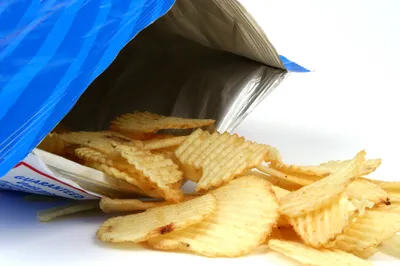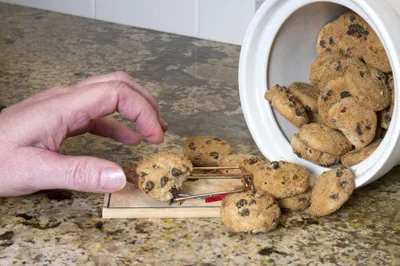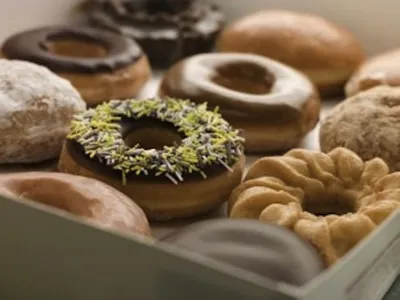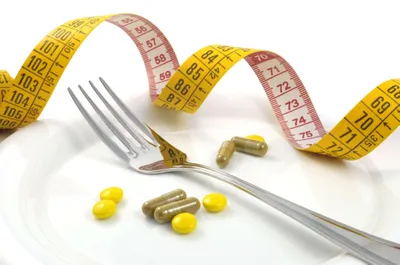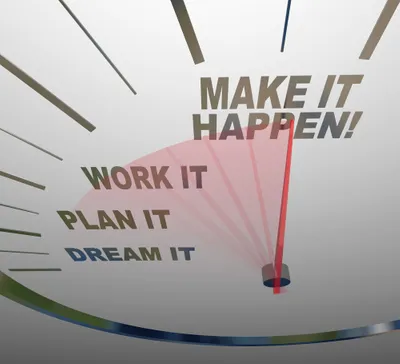If there’s one thing people are good at, it’s lying to themselves. Usually these are little half-truths, the kind of fibs that make us feel a bit better about a decision we made or actions we take. In a lot of these cases, these little lies are pretty harmless. But what about when these lies prevent you from achieving your fat loss goals—are they still harmless? Losing fat is 80-percent a mental game and if you’re also playing the role of your opponent, you are setting yourself to fail. Reframe your mental dialogue to start winning the fat loss battle…
1. A Handful Here and There Doesn’t Matter
You take the time to prepare a meal plan and weigh your food. At any given time, you can confidently recite what you ate yesterday and boast about how you stayed on plan. But did you count the extra nibbles—licking the bowl clean of cookie batter, grabbing an extra handful of crackers from the box, or refilling your wine glass “just a splash”?
When it comes to losing fat, it is pretty easy to sabotage your efforts by losing track of the extra calories you’ve consumed. It can also be difficult to quantify how much you ate—was that one serving of chips or two? You don’t need to (and shouldn’t) be a slave to calorie counting, but being honest about what you’re eating and whether it will help or hinder your goals is one of the most important conversations you can have with yourself when it comes to losing fat.
2. All or Nothing Thinking
A month into your new diet has gone by and you are feeling great. Then, temptation strikes and you concede to just one cookie. One cookie turns into 3 cookies and suddenly you feel resigned to get takeout for dinner and a bottle of wine for later, too. This all or nothing dichotomy is not sustainable because life just isn’t black and white.
Things will come up and it won’t always make sense to hang onto your diet with tight grasp. In fact, there will be many times when it’s better to loosen your grip in order to maintain a sense of balance and prevent yourself from developing a negative relationship with food. The art is to know when to push or ease off the gas pedal without slamming on the brakes and swerve off the road.
3. You Can Eat More Because You “Burned It Off”
Telling yourself that you’re entitled to eat the slice of cake because you went for an extra-long run today is a good indication that your understanding of fat loss is skewed. The amount of calories we burn during exercise is typically grossly overestimated, even by online calorie counters, as they can’t control for variables such as intensity or individual metabolism. Additionally while it’s very difficult to burn 600-calories—it’s very easy to consume 600- calories within 5-minutes.
More importantly though, using food as a reward for exercise does 3 harmful things. First, it frames exercise as a type of punishment one does to earn more food. Second, it changes your relationship with food so that it becomes a type of currency instead of a way of nourishing yourself. Finally, it sets you up to be obsessive about exercise and food in a way that can quickly take over your life.
4. There is Always a Better Diet
Nothing halts fat loss quite as quick as diet ADHD. Do you start with one plan only to become distracted by the latest diet? The marketing of popular fad diets have a few important things in common: they prey on your insecurities, they convince you their diet is the only way to lose fat, and they create a sense of urgency to try their diet today.
This marketing can lead you to flit from diet to diet without ever having the chance to assess the merits, downfalls, and success offered by each one. Instead of buying into the hype, pick a strategy and stick to it for at least a month. Then ask yourself, after an honest review of how the last month went and how it made you feel, whether it’s the diet (or your adherence to) and implementation of it that needs to change.
5. If You Don’t Lose the Weight Now, You Never Will
It is not always a good time to try and lose weight. If you have a lot of commitments on your plate (i.e., an illness in the family, or if you are under significant work stress for any reason) you may want to put your weight loss goals on hold. There is a balance between challenging yourself to make small steps towards your goals and knowing when you are just plain setting yourself up for failure.
When life circumstances arise that aren’t compatible with the lifestyle changes, switch focus. Instead of worrying about progressing, focus on maintaining the results you achieved to date or simply preventing further weight gain. Then, when you have the ability to, return your energy to your weight loss goals. You might even find that taking a break from weight loss, which can be tiring, refreshes your energy and motivates you to keep pushing forwards.

